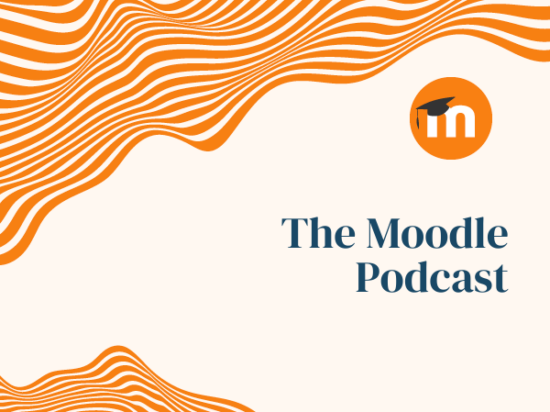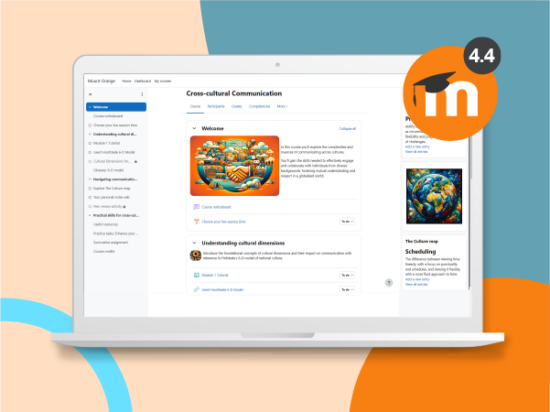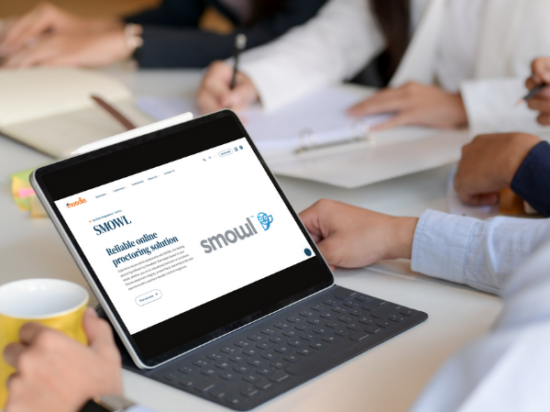At Moodle we have made it our mission to empower educators to improve our world. We do this by working to make quality education accessible and available for all people.
So you won’t be surprised to hear that the importance of education (and our drive to improve it) is ingrained into the development, community engagement and business of Moodle. We spoke to Moodle HQ’s Education Manager, Tom Murdock, about this recently.
True to our commitment to prioritise education in our work, we’re pleased to introduce and welcome Bob McDonald into the Moodle HQ family as one of our new Education Advisors.
Bob took some time out from hitting the ground running at Moodle HQ to talk to us about his work in education and with Moodle!
Moodle HQ: Welcome to the Moodle Family, Bob! We are glad to have you here as one of our new Education Advisors. Can you let us know a bit about yourself and how you connect with Moodle?
Bob: Thanks Moodle HQ! In my adult life, I have been really fortunate to have worked with remarkable educators and visionary thinkers. That good fortune led me to Moodle in 2003.
A good friend, and inspirational teacher in his own right, introduced me to Moodle. After learning about the origin of Moodle story from Martin (Moodle Founder and CEO) (“Vygotsky? I love Vygotsky!) and seeing how Moodle could help my teaching, I was hooked.
That good friend went on to found Moodlerooms which I joined in 2006 to help build the sales, training and support functions.
Later, after Moodlerooms, I explored how other LMS platforms and emerging e-learning companies developed and their strategy on how their technology could support teachers and students. With the perspectives I gained at these organizations, I can definitely say that I am thrilled to be part of the Moodle community again! It feels like a homecoming.
Moodle HQ: Sales, training, client relations and strategic development is your background across different LMS.
How will your knowledge and extensive experience in those fields contribute to education in Moodle?
Bob: Actually, my sales, training and client relations skills were formed during my time as a teacher. Trying to teach 9th grade boys about ancient history (or anything really) was an excellent training ground for selling. If I could get my students to buy into how cool ancient Sumerian culture was, I thought, “How hard could LMS sales be – especially with a name like Moodle?” And having it be freely available? Gravy!
Teaching shaped my approach to the world of business. I learned the importance of constantly innovating and meeting the needs of learners within their own journeys. In my first few days in the classroom a student asked me: “Why do I need this?” This was a profound and practical question – and the right question. I needed an approach guided by experimentation, co-creating knowledge, feedback and research with my students. As it so happens, this approach to teaching was also super helpful to building sales and marketing with my clients. Who knew?
I was fortunate to meet many visionary faculty across North America who understood how Moodle could be used to help students learn. I was able to communicate to CTOs and CIOs the sustainability Moodle provides and the value having a global user community committed to its success.
So, to answer the question above (finally!), my experience in e-learning is not all that different than my approach to teaching: building authentic relationships, understanding the needs of our community, and constantly asking how do I know what I think I know?
Moodle HQ: As mentioned, you have rich knowledge and experience in the LMS sector across the globe.
Online, blended learning and mobile learning trends are continuing. What do you think we need to do to make sure that Moodle meets the needs of future learners?
Bob: Martin, Moodle HQ, Moodle Partners and the global community have continually pushed Moodle to meet emerging learning trends. This unique ecosystem of software, service, and community gives Moodle a leg-up in responding to the new. Moodle does not have its eggs in a VC-funded basket where short-term business goals usurp doing the right thing.
So how can Moodle best support future learners? Borrowing a saying from an English football coach, “I don’t make predictions, and I never will.” However, based on my experiences and thinking about Moodle as an organization, I believe Moodle can continue to serve today’s and tomorrow’s future learners by:
- Continuing to strengthen HQ’s partnership with Moodle Partners by offering new and innovative products
- Developing and promoting new ways to engage Moodle’s 100M users through new education offerings, certifications and HQ sponsored outreach events
- Demonstrating how our open source roots are our strength, not a liability
- Embracing the new ideas of Moodle’s growing and diverse team
- Remaining focused on Moodle’s mission of “Empowering educators to improve our world.”
Staying focused on the mission statement may be the most important. Moodle has an incredible array of features, but a focus on educators, not on share prices, is our biggest gift to future learners.
I am thrilled to be joining a team of Moodle practitioners and teacher advocates who are dedicated to Moodle’s mission.



